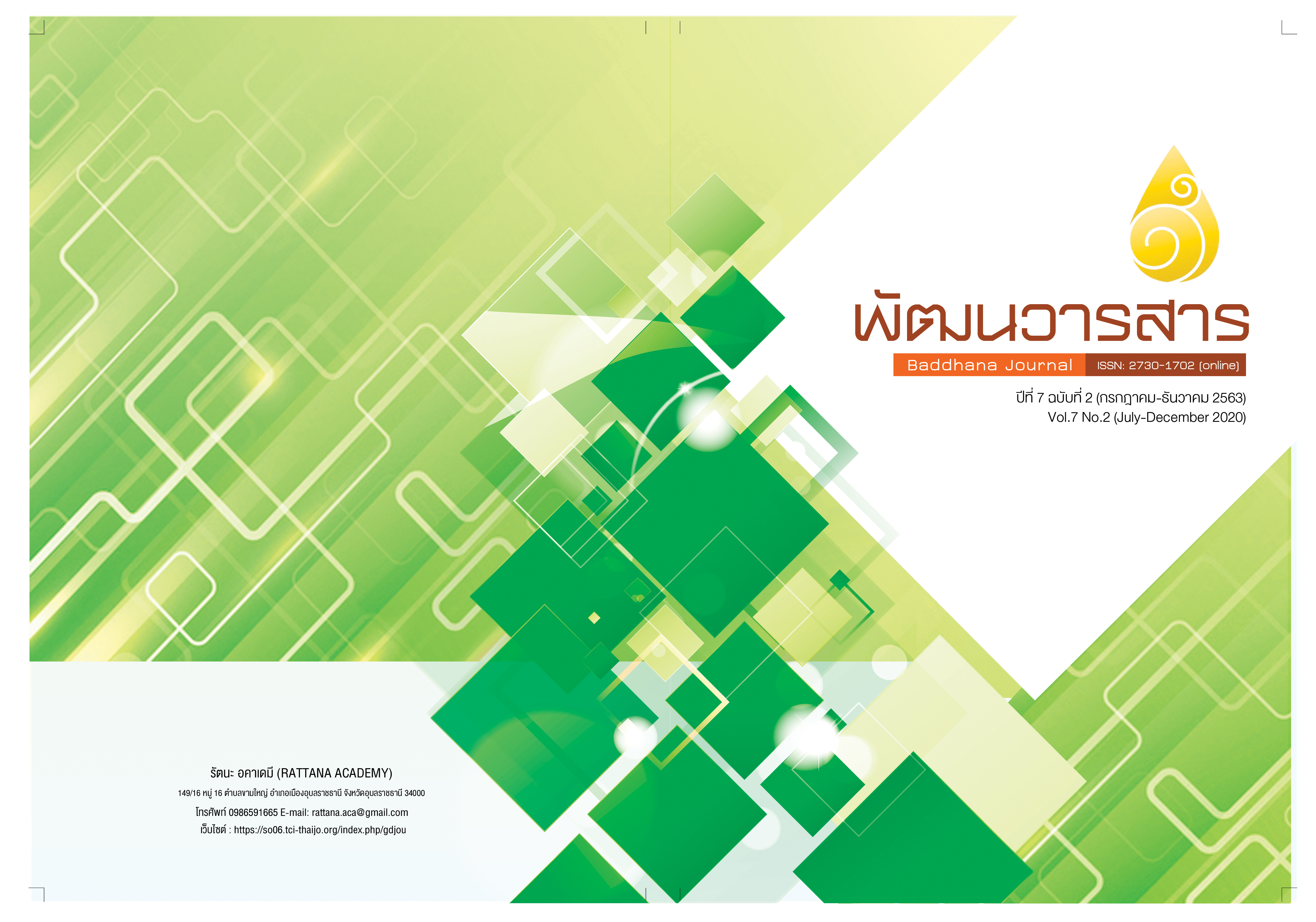The Effective Transformational Leadership Model of Academy Administrator under Office of the Vocational Education Commission in the Northeastern Region
Main Article Content
Abstract
The purposes of this research were 1) to study the current states and the needs of the effective transformational leadership 2) to construct the model of effective transformational leadership and 3) to evaluate the model. The sample group consisted of 370 academy administrators and teachers. The sample size was specified according to the Krejcie and Morgan table, drawn by using a multi-stage random sampling. The instruments included questionnaires, interview forms, and group conversation recording forms. The data were analyzed by using frequency, percentage, mean, standard deviation and content analysis. The results revealed the current states and the needs were at the high level by the current states were at the high level while the needs were at the highest level. For the four principal components of the leadership model were 1) ideological influence by the administrators having the vision and intelligence 2) inspiration by the administrators having the self-confidence, and should develop subordinates to have higher potential 3) intellectual stimulation by the administrators having the thinking and good planning, and should encourage the subordinates to show more rational thinking 4) consideration of individuality by the administrators having supervision and assignment according to the ability, and should have personal interaction with subordinates. The evaluation of the model found to be at the highest level in all aspects, appropriateness, feasibility and utility.
Article Details
References
ดิเรก วรรณเศียร. (2545). การพัฒนาแบบจำลองแบบสมบูรณ์ในการบริหารโดยใช้โรงเรียนเป็นฐานสำหรับสถานศึกษาขั้นพื้นฐาน. (วิทยานิพนธ์ครุศาสตรดุษฎีบัณฑิต สาขาการบริหารการศึกษา). กรุงเทพฯ : จุฬาลงกรณ์มหาวิทยาลัย.
ธีระ รุญเจริญ. (2550). ความเป็นมืออาชีพในการจัดและบริหารการศึกษายุคปฏิรูปการศึกษา. พิมพ์ครั้งที่ 4. กรุงเทพฯ : ข้างฟ่าง
พูลสุข หิงคานนท์. (2540). การพัฒนารูปแบบการจัดองค์การของวิทยาลัยพยาบาล กระทรวงสาธารณสุข. วิทยานิพนธ์ปริญญาดุษฎีบัณฑิต ภาควิชาบริหารการศึกษา บัณฑิตวิทยาลัย จุฬาลงกรณ์มหาวิทยาลัย.
รัตติกรณ์ จงวิศาล. (2545). ภาวะผู้นำการเปลี่ยนแปลง (Transformational-Leadership). วารสารการบริหารคน. 23(2) : 98-102.
สิปปนนท์ เกตุทัต. (2558) จากอดีตและปัจจุบันสู่อนาคตการปฏิรูปการศึกษาไทย: สู่สังคมแห่งปัญญาและการเรียนรู้: วันที่ค้นหาข้อมูล 20 ตุลาคม 2558, เข้าถึงได้จาก http://www.onec.go.th/publication/451907/po1.htm
สำนักงานคณะกรรมการการศึกษาขั้นพื้นฐาน . (2550 ก) แนวทางการกระจายอำนาจการบริหารและการจัดการศึกษาใหคณะกรรมการ สำนักงานเขตพื้นที่่การศึกษาและสถานศึกษาตามกฎกระทรวงกำหนดหลักเกณฑและวิธีการกระจายอำนาจบริหารและจัดการศึกษา พ.ศ.2550. กรุงเทพฯ: สำนักงานคณะกรรมการการศึกษาขั้นพื้นฐาน.
าธิตา เสมอชีพ. (2556). พฤติกรรมภาวะผู้นำการเปลี่ยนแปลงของผู้บริหารโรงเรียน : กรณีศึกษาผู้บริหารโรงเรียนราชวินิต. วารสารอิเล็กทรอนิกส์ทางการศึกษา (วารสารออนไลน์) ปีที่ 9 ฉบับที่ 3 : 639-651
อำพล ช้างพินิจ และคณะ. การศึกษาภาวะผู้นำการเปลี่ยนแปลงของผู้บริหารสถานศึกษาสังกัดสำนักงานเขตพื้นที่การศึกษาประถมศึกษาพิษณุโลก เขต 1. การประชุมวิชาการระดับชาติ มหาวิทยาลัยราชภัฏกำแพงเพชร ครั้งที่ 3 (ฉบับที่ 1)
อดิศักดิ์ เองมหัสสกุล และคณะ. ภาวะผู้นำการเปลี่ยนแปลงกับประสิทธิภาพในการทำงานของพนักงาน บริษัท โปรเฟสชั่นแนล เอ้าท์ซอสซิ่ง โซลูชั่นส์ จำกัด. วารสารการจัดการและการพัฒนา มหาวิทยาลัยราชภัฏอุบลราชธานี. (วารสารออนไลน์).


